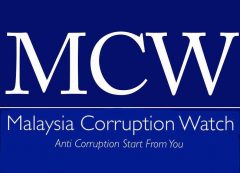
📍 The Art of winning a war on corruption is to keep ‘shooting’. NEVER STOP. ‘Shooting’ is MCW business until we win.📍
While fighting corruption is undoubtedly crucial, it is important to clarify that the phrase “keep shooting” should not be taken literally.
To effectively combat corruption, we need a comprehensive approach that goes beyond aggressive enforcement. It involves addressing the root causes of corruption, promoting transparency, strengthening institutions, and fostering a culture of integrity.
Here are some key aspects to consider in the fight against corruption:
1. Establishing Strong Laws and Institutions: We need robust anti-corruption laws and independent bodies to ensure accountability. It is crucial for the judiciary to operate independently.
2. Transparency and Accountability: Enhancing transparency and accountability is essential. This includes implementing systems for financial disclosure, making procurement processes transparent, and providing public access to information. Protecting whistleblowers encourages reporting of corruption.
3. Prevention and Education: Prevention is vital. Educating the public, civil servants, and businesses about the negative impact of corruption and the benefits of integrity can help create a culture that rejects corrupt practices. Ethics training and integrity programs can promote ethical behavior.
4. International Cooperation: l Collaborating with other countries and international organizations is important in fighting corruption that crosses borders. Sharing best practices, exchanging information, and providing mutual legal assistance are crucial.
5. Strengthening Institutions: Building strong and independent institutions is necessary. Law enforcement agencies, the judiciary, and public administration must be effective and operate with integrity. Providing adequate resources, training, and professional development is vital.
6. Engaging Civil Society: l Involving civil society organizations, the media, and citizens is crucial. They can monitor and expose corrupt practices, advocate for reforms, and hold authorities accountable.
7. International Standards and Conventions:
Ratifying and implementing international anti-corruption conventions and standards, such as the United Nations Convention against Corruption (UNCAC), provides a framework for national efforts and encourages international cooperation.
It’s important to remember that the fight against corruption is an ongoing process that requires long-term commitment and regular evaluation of implemented measures.
This message is brought to you by Malaysia Corruption Watch – MCW.
Connect with us:
Facebook: Malaysia Corruption Watch
Website: www.corruptionwatch.my
WhatsApp: 0178111472
15th July 2023
Please share this message with all the people of Malaysia.
